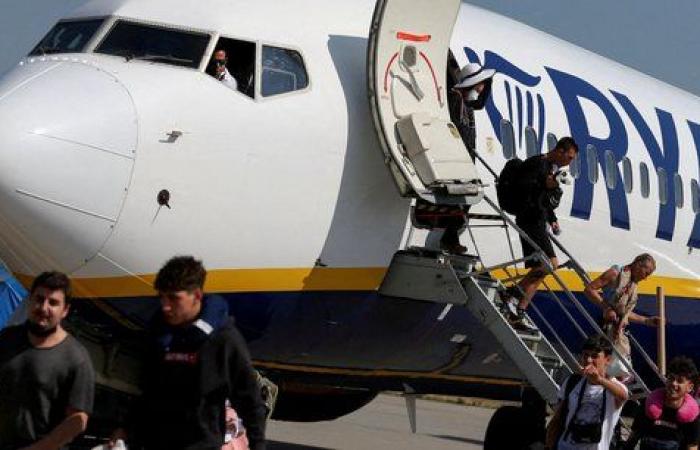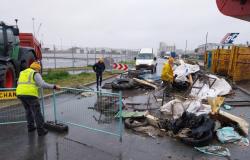If there is an airline that has mastered media pressure tactics to perfection, it is Ryanair. The European low-cost giant proves it once again with this ultimatum that it has just addressed to the French government: if the latter does not renounce the significant increase in the taxation of air tickets, provided for in the draft law finances 2025 to strengthen tax revenues to the tune of 1 billion euros, it will suspend its activities in ten regional airports. And this, with immediate effect from January 1st. This decision was announced at The Tribune by Jason McGuinness, Ryanair Chief Commercial Officer.
Air transport tax: the battle of numbers is on
According to the head of the Irish group, this brutal suspension will be accompanied by a 50% reduction in flights at French regional airports. Asked about the scale of such a decision, Jason McGuinness did not give precise figures, simply indicating that Ryanair serves around 22 regional airports in France in winter and a little more in summer.
Immediate consequences
The list of regional airports that will be affected has not yet been finalized, with Jason McGuinness specifying that discussions are underway with the platforms potentially affected. If the implementation of the increased tax on air tickets was nevertheless confirmed, he ensures that the decision will be immediate and that it will apply without an adaptation period.
“You will see the initial impact on French regional airports from January 1,” says the Ryanair commercial director.
However, he assures that closing lines in France is not what Ryanair wants to do, regretting possibly having to leave airports in which the company has been established for 20 years. But it will obviously take more than the emotional dimension for the low-cost operator to give up its ultimatum.
The impact could then go further, with consequences on the summer season – the most important in terms of activity and profitability – but also for larger airports. The commercial director indicates that it is too early to know if there will be reductions on Ryanair bases in France – knowing that the company has already announced the closure of its base in Bordeaux – but that they will probably no longer be priorities for the deployment of new capabilities.
Air: the low-cost model is marking time financially
To justify this decision, Jason McGuiness explains that it is a 260% increase in this solidarity tax on plane tickets (TSBA), rather than talking about an increase of between 2.63 and 7.51 euros (in economy, by domestic or European flight, departing from France). He thus judges that it is an attack against ordinary French people who live in the Province, and which will only moderately affect the Parisian elite.
European competition
Above all, the commercial director places this increase in a context of currently exacerbated competition between countries, regions and airports to attract airlines. He thus recalls that airlines in Europe have still not regained their capacities before the health crisis. Based on Eurocontrol figures, he estimates that the number of flights in France is still 8% lower than in 2019 and that only Germany is doing worse within the European Union. To this, he adds that Ryanair is the only company to continue to massively deploy capacity, even if he neglects to point out that the company is currently constrained by aircraft delivery delays.
In this context, the commercial director believes that Ryanair has no reason to stay in French regional airports if it can obtain better conditions in surrounding countries.
“We will be much better able to deploy this capacity elsewhere, in Italy, in Spain, in Poland, in central and eastern Europe”affirms Jason McGuinness, estimating that the question is not whether the lines in French airports would still be profitable with the reinforced tax, but where Ryanair can maximize its profits. The manager explains that his company has confirmed growth of 25% in Sweden next year, with the deployment of two additional planes, following the abolition of the local tax on air transport.
“We see countries in Europe abolishing aviation taxes like Hungary or Sweden, where flight shaming was born, or regions like Calabria, Trieste and Pescara in Italy. They do this because they are competing to attract air capacity that is still limited today. Unfortunately, with this tax proposal, the French government is doing exactly the opposite,” explains Jason McGuinness to La Tribune.
While representatives of the French flag have widely mobilized to denounce this taxation project since its announcement, without much success so far, this ultimatum from a giant like Ryanair could resonate much more strongly.






